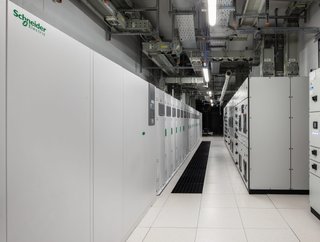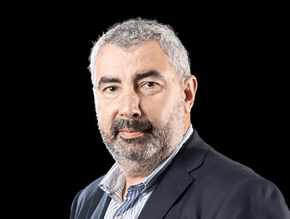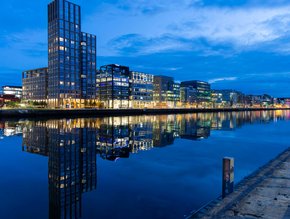Schneider & Digital Realty Tackle Data Centre Circularity

With power-intensive workloads such as AI are set to cause data centre electricity use to double by 2026, the data centre industry faces significant challenges when it comes to lowering global greenhouse gas (GHG) emissions.
When it comes to reducing this carbon footprint, much of the industry’s focus has been on reducing direct – or Scope 1 and 2 – emissions from data centre operations. However, the indirect, or Scope 3, emissions associated with data centre supply chains have been historically overlooked, despite comprising the majority of the industry’s carbon footprint.
Scope 3 emissions include emissions from the manufacturing of servers and other data centre equipment, the extraction and transportation of raw materials, and the disposal and recycling of retired hardware. While Scope 1 and 2 emissions are directly controllable by data centre operators, Scope 3 emissions are more difficult to measure and mitigate.
By taking a comprehensive approach to carbon accounting and pursuing strategies to cut scope 3 emissions, data centre operators can make meaningful progress towards sustainability.
One such example of this is Digital Realty. Continuing to grow its presence globally, it became the first global data centre organisation to join the Science-Based Targets Initiative (SBTi) in 2020, and has announced plans to reduce Scope 1 and 2 emissions by 68% and Scope 3 emissions by 24% by 2030.
As part of this ambition to reduce its Scope 3 emissions, Digital Realty has partnered with Schneider Electric to deliver an innovative circular economy initiative at its PAR6 data centre in Paris.
Circularity project aims to reduce e-waste and Scope 3 emissions
The circularity project at PAR6 aims to extend the lifespan and maintain the operational integrity of mission-critical electrical infrastructure, including Schneider Electric low-voltage (LV) and medium-voltage (MV) equipment, switchgear and three-phase uninterruptible power supplies (UPS).
A key aspect of the project is the ability to reuse core components of the electrical systems. Digital Realty is also implementing new take-back, recycling and refurbishment programs to reduce e-waste, Scope 3 emissions and the use of high-impact greenhouse gases like SF6.
This project is expected to help Digital Realty save and avoid between 50% and 70% of the embodied carbon within its LV, MV and three-phase UPS equipment in the next three to five years while prolonging equipment lifecycles and enabling Digital Realty to improve its environmental impact.
“We are constantly adapting our strategy and operations to meet the challenges of sustainable development: the circularity of equipment – in this case, electrical equipment – is one of the major levers for decarbonising our activities and our value chain,” said Fabrice Coquio, Senior Vice President and Managing Director of Digital Realty in France. “As we move forward, our ambition is to help customers meet and exceed their environmental goals by leveraging our services.”
- Project has delivered 3.7 tonnes of CO2 savings
- Digital Realty plans to reduce Scope 3 emissions by 24% by 2030
According to the companies, the circularity project has delivered 3.7 tons of CO2 savings from modernisation, refurbishments and replacements to its UPS equipment. Further emissions savings are also expected through the deployment of Schneider Electric’s SM AirSeT, SF6-free MV switchgear, which the company says uses established air and vacuum technology to provide data centre operators with increased sustainability and efficiency.
“With European data centre growth reaching a record high, driven by the adoption of AI, it’s imperative that operators across the region explore and innovate their approaches to sustainability,” comments Marc Garner, Senior Vice President, Secure Power division, Schneider Electric, Europe. “As we look to the future and digital demands proliferate, it's vital that technological advancement moves hand-in-hand with circular economy principles – ensuring we build the data centres of the future responsibly for the next generation.”
******
Make sure you check out the latest edition of Data Centre Magazine and also sign up to our global conference series - Tech & AI LIVE 2024
******
Data Centre Magazine is a BizClik brand






